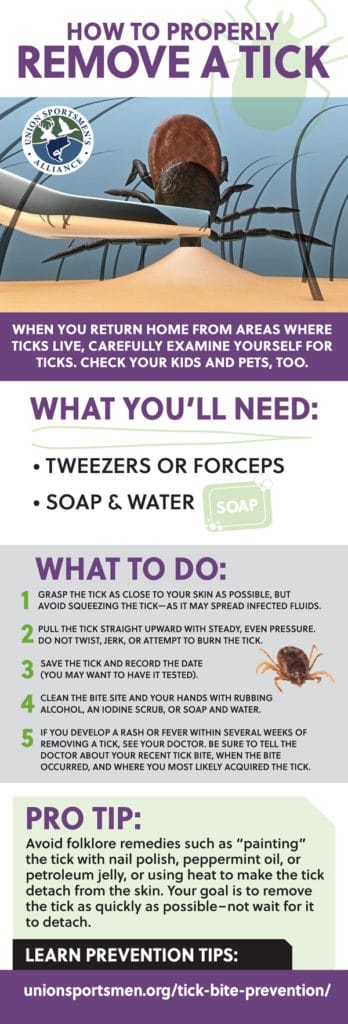
The news hit me like a sucker punch in the gut. As I worked to overcome the shock, the words of the person on the phone began to sink in. One of the toughest, most enigmatic men I’d ever known was dead. My eyes filled with stinging anger as the murderer’s name was articulated. Tick Fever. That was nearly four years ago. A man whose life had led him down many paths filled with tales of dogged stamina, perseverance and extreme risk was killed by a tiny arachnid not much larger than a poppy seed. Tick borne diseases are a very serious threat to people who enjoy the outdoors and, quite honestly, anyone who spends time outside. Avoiding tick bites is relatively simple and are worth the extra time and effort
Ticks can even hitch a ride into your home on your pets. According to the most current information, tick bites in the United States can transmit more than 20 different bacterial and viral diseases to the people bitten. While these diseases are rarely fatal, they pose a significant health implication to those of us who love to hunt, fish and be outside. You’ve heard the old adage “an ounce of prevention is worth a pound of cure,” and that could not be more true when it applies to avoiding tick bites. Taking a few simple precautions before you go into the field can significantly lower your vulnerability to lurking ticks.
SPRAY DOWN – One of the most effective ways to avoid tick bites is to “pre” treat your clothes and boots with a permethrin based spray like Sawyer Premium Insect Repellent. Avoid direct contact with your skin by allowing the product to dry on your clothes several days before your outdoor trip. The spray will last for months on your boots and for several weeks on your outer garments. I spray every piece of my outerwear, including my boots, gloves and hat, prior to spring turkey season, and I have not been bitten by a tick or a chigger in more than 10 years. You can even spray it on your dogs. NOTE: This product is extremely toxic to fish and other aquatic organisms, as well as cats, when wet. Read application instructions carefully before use.
COVER UP – Wear long-sleeve shirts and long pants that are light colored and lightweight to cover exposed skin. Tuck your pants into your boots, and thoroughly spray the tops of your boots with a permethrin spray to avoid tick bites.
STEER CLEAR – Avoid areas with high grass and stay in the sun when possible. Ticks love high thick grass and tend to congregate in shady areas.
SUIT UP – Several companies now make “tick proof” clothing and, by all accounts, it is extremely effective. Some of this clothing has permethrin bonded into its fibers, which repels ticks, mosquitoes and chiggers and also maintains its insect barrier through dozens of wash cycles. Other clothing types create a tight, tick-proof barrier next to your skin that does not allow ticks to crawl under it.
BE DILIGENT – If you don’t like the idea of special clothes or insect repelling sprays, then be extremely diligent. Wear light colored clothing (this allows you to see tiny ticks crawling on your clothes) and cover all bare skin. Tuck your pants into your boots and socks, and tape the sleeves of your long-sleeve shirts tight around your wrists. Shower and search for ticks immediately after returning indoors, and throw all your clothes in a high heat dryer to kill ticks that may have hitched a ride. These precautions are relatively simple and are worth the extra time and effort. Take it from someone who is still fighting Chronic Lyme disease and alpha gal red meat allergies, do whatever you can to protect yourself and your family from tick bites. Don’t let these nasty little suckers ruin your outdoor experiences or, worse, take your life.
Think you may have Lyme disease? Check your symptoms HERE.
Written by Scott Vance, Union Sportsmen’s Alliance – CEO







